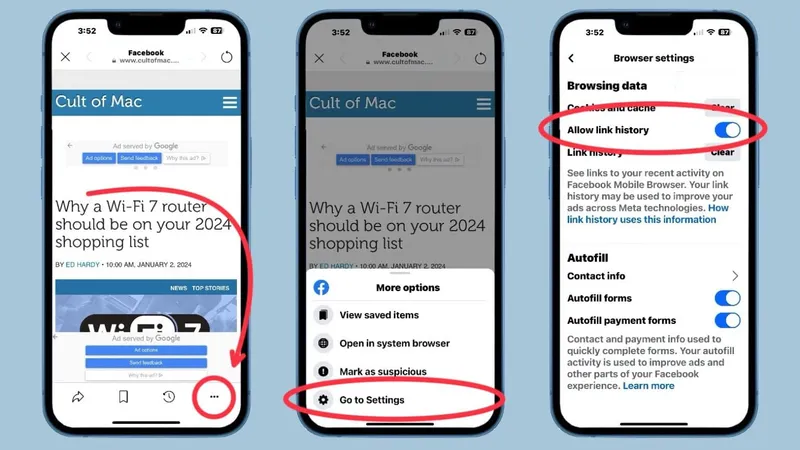Meta's Link History feature: How to disable and opt-out
Learn how to disable Meta's 'Link History' to protect your online privacy on Facebook and Instagram. Easy steps and insights provided.
Meta has recently introduced a new feature called 'Link History', asserting that it simplifies the process of locating previously visited links. However, given the company's track record of questionable data collection practices, it's reasonable to harbour suspicions about potential ulterior motives.
In the following sections, we provide comprehensive insights into link tracking, shedding light on everything you should be aware of regarding this feature – including instructions on how to disable it if you choose to opt out.
What is Link History?
Link History once turned on, keeps a record of every link you click in the Facebook and Instagram apps, saving them in a special place. According to Meta, it's meant to help you easily find links you've clicked before. However, they don't openly discuss how it could be collecting data on what you do online.
Meta says Link History is convenient for not losing track of links, claiming you'll "never lose a link again." But, like their previous privacy settings, turning it off involves a few steps that might make users more likely to just keep it on. Many users might not even be aware of these settings, and since they're automatically turned on, they often stay that way.
This raises concerns about how clear and informed users are about what's happening with their data, echoing past issues with Meta's privacy practices.
Concerns mount over privacy implications of Link History feature
The introduction of Link History by Meta has sparked fresh privacy concerns. Recent reports suggest that Meta has consistently tracked the links users click on within its apps like Facebook and Instagram.
These apps have their built-in browsers, and when users click on links within them, it doesn't open the default browser on their phones, potentially enabling extensive tracking of visited websites. Link History makes this data tracking more apparent.
According to Meta, allowing link history means they may use your information to enhance targeted ads across their platforms. While Facebook claims it will delete Link History when the setting is turned off (within up to 90 days), the retention of any other records remains unclear.
With Link History automatically enabled, users gain a closer look at Facebook's link-tracking practices, raising questions about transparency and user control over their data.
How to turn off Link History on Instagram and Facebook?
Disabling Link History tracking involves a few steps in the app settings:
- Open the Facebook or Instagram apps and click on any link to open the in-app browser.
- Tap the "More" icon in the bottom right corner, then select "Settings."
- Locate the "Allow Link History" toggle and switch it off.
- Confirm your choice to disable Link History if prompted.

After turning off the toggle, Meta states that it may take up to 90 days to clear any existing link history it has stored.
In the context of increasingly stringent privacy regulations introduced by lawmakers, Meta appears to be taking precautions by allowing users to opt out of data collection, potentially avoiding scrutiny from regulatory bodies. Notably, Meta faced a $14 million fine in Australia last year for undisclosed data collection. Additionally, a Reuters report from October suggested that Meta is exploring ad-free subscriptions as a means to comply with regulations from the EU.







